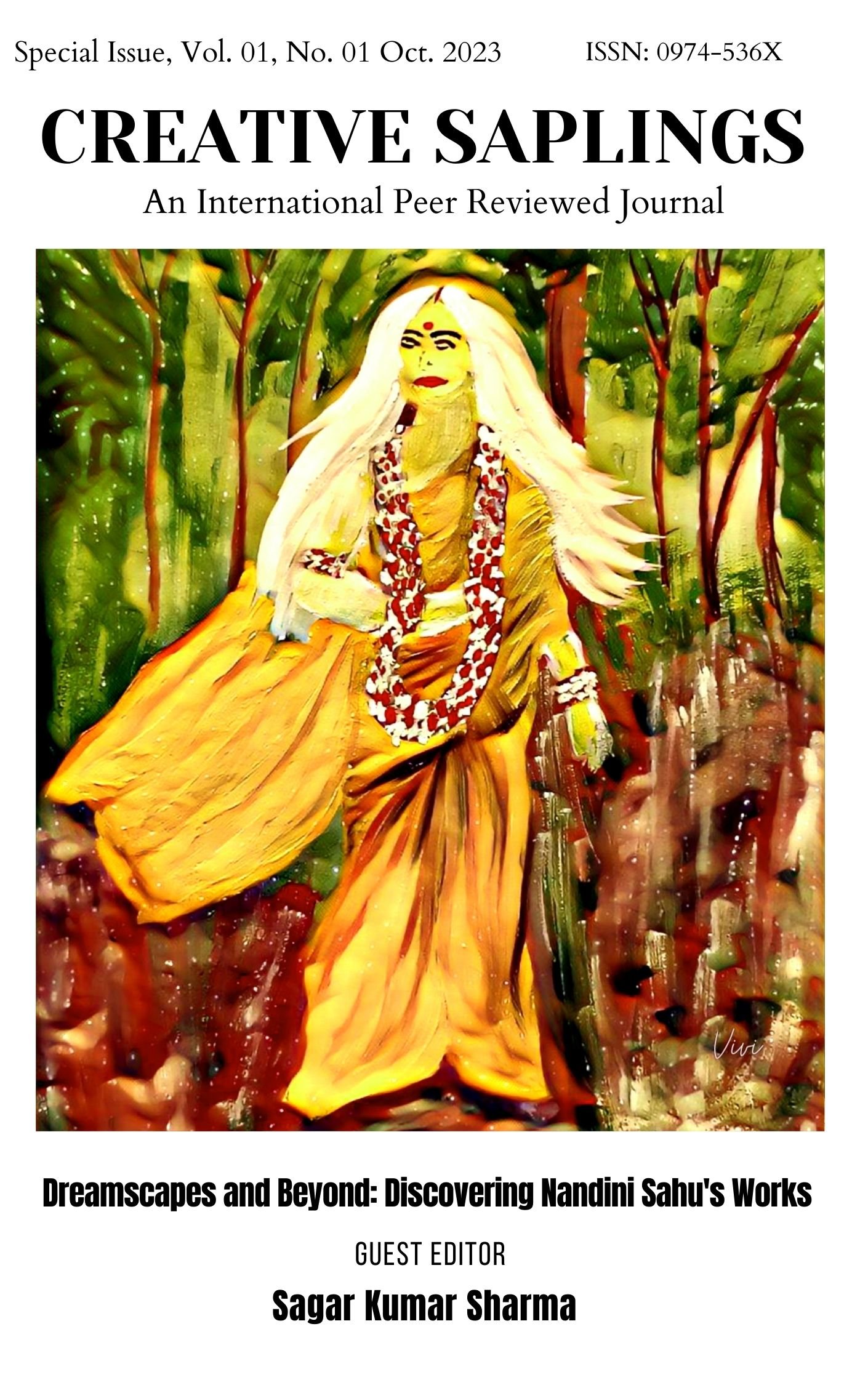From “Neti” to “Deathless Goddess”: The Feminine in Nandini Sahu’s Sita and Shedding the Metaphors
DOI:
https://doi.org/10.56062/gtrs.2023.1.01.409Keywords:
Sita, Neti, Shiv Dhanush, femininity, Kali.Abstract
In both Sita and Shedding the Metaphors, Nandini Sahu offers revolutionary interpretations of womanhood, effortlessly embracing nature, tradition, and modern cultural norms. She says she "pours" her own "image" and "personality" into her characters and stories, drawing on her own experience and interactions (Shedding the Metaphors, Preface, 13). Her approach embraces subjectivity and empiricism as well as her broad variety of readings, including both literary and academic works, even though it is not necessarily autobiographical. Nandini Sahu also makes Sita her own in Sita, revitalizing Sita's mythology in the process and giving her a strong sense of modern relevance in poetry that is never prosaic and is driven by argument. Her women characters emerge as strong and impressive, with a strong emotional maturity and a marked sense of empathy and morality but willing to reveal their raw emotions and spontaneity. Their exploitation by uncaring individuals is seen in keeping with a patriarchal society, that is destructive of both femininity and nature. The strong single mothers and single working women manage to draw on their capacity to love and take care of others to feed their strength. Her women are Goddess-like and like primal Nature: abundant, giving, strong, eco-feminist, and ready to break free from stereotypes and conventional metaphors. The subjectivity of Sahu's Sita is strongly Indian feminist and highly modern. She moves fluidly between the past, conceptions of the past, and present patriarchy, where female foeticide still haunts India, without missing a beat (of argument or metre). She probes into every facet of women's existence, connecting old conceptions of male supremacy with present clichés.
Downloads
References
Cixous, Helene. “The Laugh of the Medusa”, translated by Keit Massachusetts, 1980].h Cohen, Paula Cohen, Signs, Vol. 1, No. 4 (Summer, 1976), pp. 875-893 Published by: The University of Chicago Press Stable URL: http://www.jstor.org/stable/3173239 Accessed: 25 June 2023
Irigaray, Luce. “When Goods Get together”. Essay in This Sex Which is Not One (1970). Translated by Claudia Reeder in New French Feminisms, ed. and intro. by Elaine Marks and Isabelle de Courtivron. Amherst : University of Massachussets, 1980.
Sahu, Nandini. Sita. The Poetry Society of India. 2014.
Sahu, Nandini. Shedding the Metaphors. Black Eagle Books. 2023.

Downloads
Published
Issue
Section
License

This work is licensed under a Creative Commons Attribution-NonCommercial-NoDerivatives 4.0 International License.




